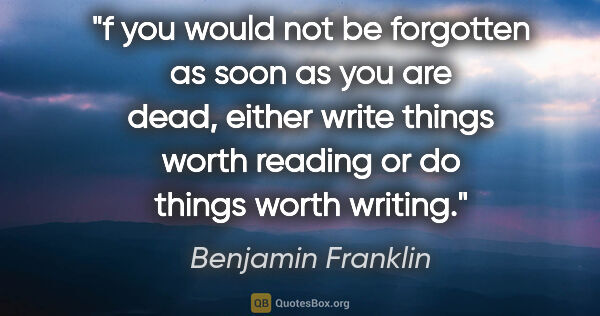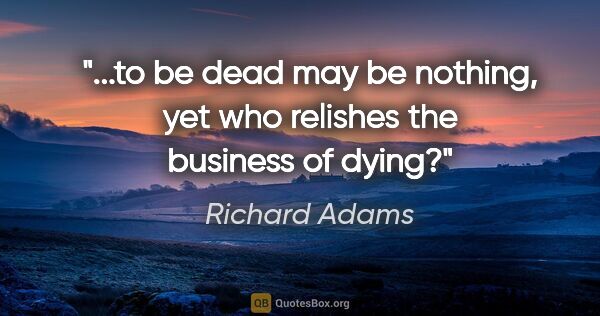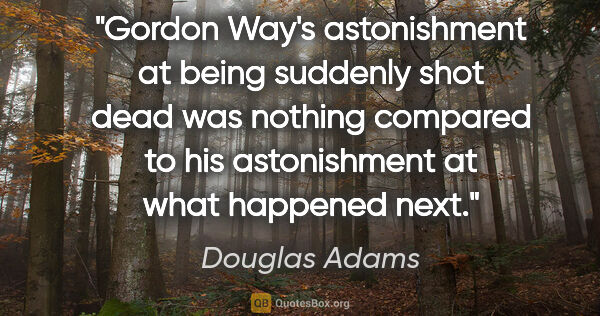Dead Quotes (page 46)

An oblong puddle inset in the coarse asphalt; like a fancy footprint filled to the brim with quicksilver; like a spatulate hole through which you can see the nether sky. Surrounded. I note, by a diffuse tentacled black dampness where some dull dun dead leaves have stuck. Drowned, I should say, before the puddle had shrunk to its present size.
Vladimir Nabokov
Toby Keith writes songs like 1993's "Should've Been a Cowboy," and what's compelling is that you can't deconstruct its message. "Should've Been a Cowboy" is not like Bon Jovi's "Wanted Dead or Alive," where Jon Bon Jovi claimed to live like a cowboy; Toby Keith wants to be a cowboy for real.
Chuck Klosterman
Of the Seven Deadly Sins, anger is possibly the most fun. To lick your wounds, to smack your lips over grievances long past, to roll over your tongue the prospect of bitter confrontations still to come, to savor to the last toothsome morsel both the pain you are given and the pain you are giving back--in many ways it is a feast fit for a king. The chief drawback is that what you are wolfing down is yourself. The skeleton at the feast is you.
Frederick Buechner
Never again will you be capable of ordinary human feeling. Everything will be dead inside you. Never again will you be capable of love, or friendship, or joy of living, or laughter, or curiosity, or courage, or integrity. You will be hollow. We shall squeeze you empty and then we shall fill you with ourselves.
George Orwell
...people don't respect the morning. An alarm clock violently wakes them up, shatters their sleep like the blow of an ax, and they immediately surrender themselves to deadly haste. Can you tell me what kind of day can follow a beginning of such violence? What happens to people whose alarm clock daily gives them a small electric shock? Each day they become more used to violence and less used to pleasure.
Milan Kundera

Other people are likely not to be aware that those who pursue philosophy aright study nothing but dying and being dead. Now if this is true, it would be absurd to be eager for nothing but this all their lives, and then to be troubled when that came for which they had all along been eagerly practicing.
Plato



